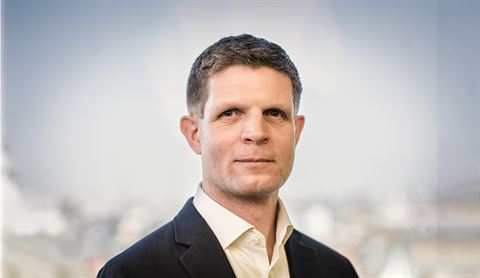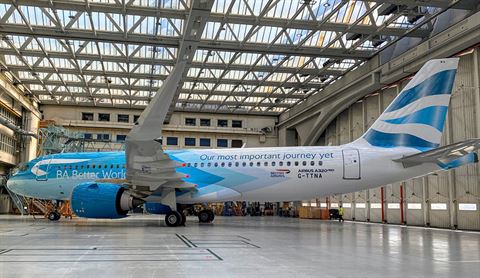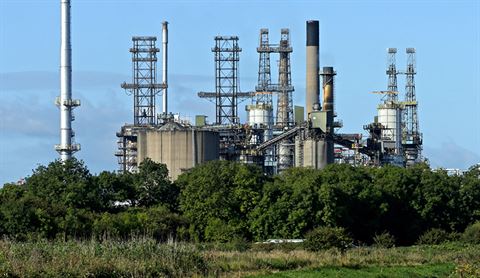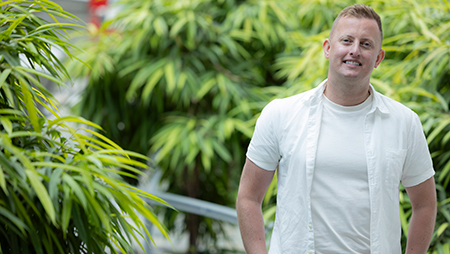BA BETTER WORLD • September 2023
How do you… make aviation fuel more sustainable?
Sustainable aviation fuel reduces lifecycle CO2 emissions by more than 80 per cent, which is why we’ve partnered with Phillips 66 Limited, among others, to help us achieve our goals. Is this the future of aviation? Emma Blackmore finds out
When you’ve just finished a lovely meal in a top restaurant, do you ever wonder what happens to the used cooking oil behind the closed doors of the bustling kitchen? Well, you might be surprised to know that it could be fuelling your next big getaway – with the help of our sustainable fuel partners.
At British Airways, we have a roadmap of short, medium and long-term initiatives to achieve net-zero carbon emissions by 2050. To this end, we have secured enough sustainable aviation fuel (SAF) to reduce our lifecycle CO2 emissions by almost 100,000 tonnes, the equivalent of powering 700 flights between London and New York on our fuel-efficient Boeing 787 aircraft. While this is only 0.5% of our scope one emissions, the impact is a small, but incredibly positive start.
So what is SAF and why could it be a game changer for aviation? Simon Holt, Emerging Energy (Europe) Manager at Phillips 66 Limited, a wholly owned subsidiary of American multinational energy company Phillips 66, has the answers.

How is SAF made?
SAF is produced from a wide range of sustainable waste sources, including used cooking oil. “Suppliers collect used oils into storage tanks and then send this to our Humber Refinery in North Lincolnshire,” Simon explains. The oil is pumped into a tank and is cracked – a technique where large and complex hydrocarbon molecules are broken down into smaller components. “The oil goes through a number of different processes to make an identical looking product to fossil jet fuel, after it’s been cracked and treated and cleaned up,” Simon adds. The fuel is then stored in a tank.
How is SAF transported?
Beneath hundreds of miles of British countryside lies an underground network of jet fuel pipelines. First built to supply fuel to airfields in World War II, it’s now known as the Exolum Pipeline System. Humber Refinery is connected to this jet fuel pipeline infrastructure, which directly supplies the major airports in the UK.
How sustainable is SAF?
“The SAF we make from used cooking oil has lifecycle CO2 emissions savings of more than 80 per cent, relative to fossil jet fuel.
“Even with SAF, you still emit CO2 from the plane, but we define this as modern carbon – carbon that has been recently absorbed by plants, produced into cooking oil, used to cook food and collected by us and then turned into SAF. Creating this cycle of modern CO2 recovers waste as most used cooking oils normally go to landfill.”
How many tonnes of SAF is currently being produced?
Phillips 66 Humber Refinery is the only at-scale producer of SAF in the UK. “We’ve been increasing our processing of used cooking oil since 2017 – at that point, there wasn’t a market for SAF and we were blending the jet fuel portion into diesel and selling it as diesel,” Simon says. As a whole, the refinery produces more than 20,000 tonnes of SAF a year, with plans to reach more than double by 2027. “We’re expecting to see significant volumes beyond what we produce today by 2030,” adds Simon.

How come there’s a market for SAF now?
The UK’s net-zero target by 2050 and the Paris Climate Accord were the catalysts for change. “Conversations about climate change have progressed a lot since 2017,” Simon says. “And the net-zero target set triggered the oil industry to really think about what they needed to do to be consistent with that.
“The beauty of what we’re doing at Humber is we are utilising existing equipment without having to build new production plants. As an industry, we are going to have to build new production plants eventually to convert waste such as black bag waste and forestry residues, which requires new equipment, but we can still integrate our existing infrastructure – the pipelines to airports and storage tanks. I think the UK is in a good position to lead the world on SAF production over the coming decades.”
What are the challenges to producing SAF?
One challenge is a limited availability of waste feedstocks (aka used cooking oil), although by no means are the feedstocks exhausted. “There’s a long way to go on SAF. We’ve only just scratched the surface,” Simon adds. “But we’re developing lots of projects such as processing tyre pyrolysis oil (recovered from end-of-life tyres), which could in the future be used for SAF production, for example.”
What does the day-to-day of an Emerging Energy Manager entail?
Strategy, policy, and engineering join forces in Simon’s role. “I look at the long-term strategy and how we are transforming from a traditional producer of fossil fuels to what our business needs to be in a net-zero world,” Simon says. Phillips 66 has a number of refineries, many in the US (its HQ), and is always looking at how to adapt. “We don’t extract oil and gas, but we process fossil feeds into the products used today,” Simon adds. “My job is to look at what we do today, what our assets are, and what we can do with those assets to have a sustainable business over the coming decades.”

How is Humber Refinery being more sustainable?
“We produce a solid product from crude oil called coke and, in many applications, this isn’t burned, so it doesn’t produce CO2 emissions. Instead, for example, it is used in lithium-ion batteries for electric vehicles and consumer electronics.” The refinery is also looking to implement carbon capture technology to reduce its carbon emissions. How does this work?
“CO2 is emitted through a stack and then absorbed through an amine solvent. The carbon then goes into another column, is heated, and evolves into a more concentrated form. You can then compress it and inject it into a pipeline – transferring it into depleted gas fields in the North Sea.”
The Humber Refinery has multiple projects planned alongside carbon capture, which will allow the UK’s only at scale producer of SAF to lower its carbon emissions.
This article has been tagged BA, Technology
More from previous issues

The all-inclusives worth spending your Avios on
You can now use Avios for part-payment on trips with British Airways Holidays. Here’s where to check in (winter sun included)

A new bar and more bliss: inside Heathrow’s Galleries T5B Club Lounge
Possibly one of Heathrow’s best kept secrets, this lounge has welcomed the arrival of a bespoke Whispering Angel bar – and the updates don’t stop there

Meet one of the experts behind your in-flight entertainment
When it comes to digital content on board, nothing gets past Darren Stevenson. He takes us beyond the screen to learn more

Want to earn double Tier Points this year? Here’s how…
Fancy climbing effortlessly up the tiers of the Executive Club? Need a quick refresher on how it all works? Get up to speed with our guide
